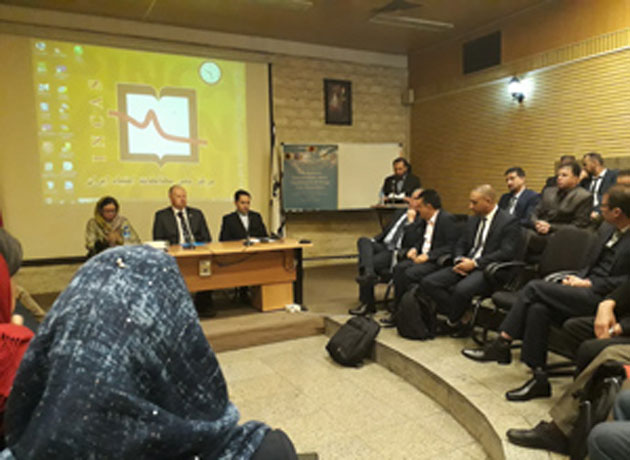Developing Capacity Of Afghan Healthcare Professionals On Evidence-Based And Human-Cantered Drug Dependence Treatment And Care

“The present meeting has a strong international partnership character in the spirit of the United Nations with the cooperation and collaboration of three UNODC Offices, namely UNODC Headquarters, UNODC Afghanistan and UNODC Iran in collaboration with the Iranian Drug Control Headquarters and the Islamic Republic of Afghanistan” said Mr. Alexander Fedulov Representative of UNODC in the Islamic Republic of Iran, AVA Diplomatic reports.
He said In the opening ceremony of two parallel training workshops for Afghan drug use disorders’ policy makers and senior managers. The two parallel training workshops: “A UNODC workshop for policy makers with a focus on public policy development” and the “UNODC Training on TreatNet Volume D Management of Drug Dependence Treatment Services” were conducted by UNODC for Afghan policy makers and senior managers of drug use disorders’ and convened by the Iranian National Centre for Addiction studies (INCAS) 4-7 November 2018. These training workshops were conducted under the UNODC-WHO Programme on drug dependence treatment and care (GLOK32) graciously funded by the People of Japan.
First speaker in the opening session was Mr Hamid Jomepour Director General Drug Treatment and Social Support of the Iranian Drug Control Headquarters (DCHQ). Mr Jomepour expressed his gratitude about convening of the training and emphasised on the significance of joint national and international initiatives in drug demand reduction and drug control. He gave an account of successful and widespread drug treatment services in the Islamic Republic of Iran. The next speaker Dr Shahpoor Yousuf Director of drug Demand Reduction Directorate of the Afghan Ministry of Public Health (MoPH) followed by Dr Mohammad Nasar Sharifi Director of the Drug Demand Reduction Directorate of the Ministry of Counternarcotics of the Islamic Republic of Afghanistan who emphasised that containing the issue of drugs could only become possible through regional and international cooperation. Dr Ali Reza Noroozi, Senior Researcher in the Iranian National Centre for Addiction Studies and Ms Anubha Sood, Head of the Drug Demand Reduction and Alternative Development in UNODC Afghanistan, who also emphasised the significance of cooperation in drug demand reduction. Mr Alexander Fedulov, Representative of UNODC in the Islamic Republic of Iran remarked that wished the participants fruitful and productive trainings in the days to come.
The feedback received from participants denoted the positive results of the training in terms of a better understanding and capability utilising policy making platforms for improving drug treatment programmes effectiveness and the application of standard management procedures for improving drug dependence treatment service provision.

